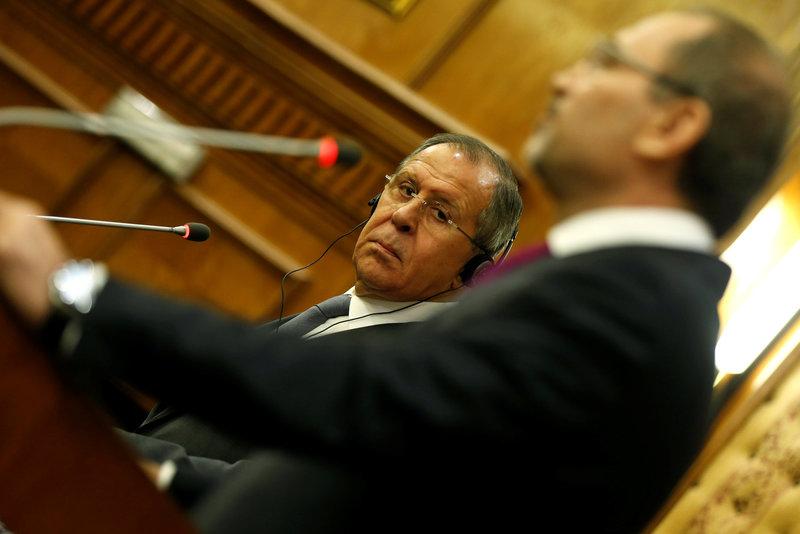Amman- Amman and Moscow have stressed on Monday that they were cooperating with Washington to establish a de-escalation zone in southeast Syria after the “success” of the ceasefire agreement, which was reached around two months ago thanks to a tripartite cooperation.
Sources in the Jordanian capital said that talks between Russian Foreign Minister Sergei Lavrov and Jordanian officials in Amman have focused on uniting the Syrian opposition in preparation for the upcoming Astana meeting next week, as well as the expansion of de-escalation areas in southeast Syria, following the success of the same plan in the southwestern part of the country.
Russian-US-Jordanian meetings will be held soon in Amman to discuss logistical details of the southeastern regions, which will be announced as de-escalation zones once all relevant arrangements are finalized.
The sources noted that Jordanian officials have expressed to Lavrov the kingdom’s support for the political process to resolve the Syrian crisis and stop the bloodshed, as well as to the need for all foreign forces and militias to withdraw from the country.
The Russian foreign minister and his Jordanian counterpart, Ayman al-Safadi, discussed on Monday the Syrian crisis, bilateral relations, the Palestinian issue and efforts to revive the peace process and fight terrorism.
In a joint news conference held following the meeting, the two officials stressed the need to reach a political solution in Syria, to consolidate the ceasefire across all the country’s territories and to deploy all possible efforts to resolve the ongoing crisis.
Commenting on the US presence, Lavrov said: “There are uninvited guests working in Syria, but the American military presence is against international law, and, at the same time it is a reality, and it is possible to benefit from it in the fight against terrorism.”
“The position is clear: all those, who are present on the Syrian territories and airspace without the consent of the authorities, violate the international law,” the Russian minister said, pointing out that Russia, Iran and Hezbollah were present in Syria “upon the approval and request of the Syrian authorities.”
Lavrov underlined the importance of the ceasefire agreement, which he said was the fruit of cooperation between Moscow, Washington and Amman.
The Jordanian foreign minister, for his part, reiterated the kingdom’s calls for the withdrawal of all foreign forces from Syria and its keenness on the country’s unity and the establishment of truce across its territories.
